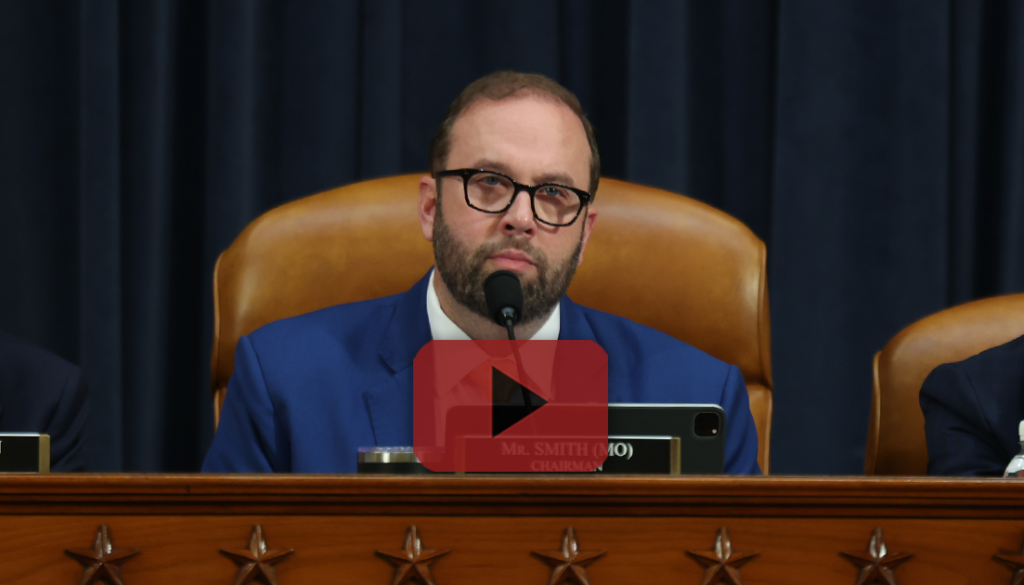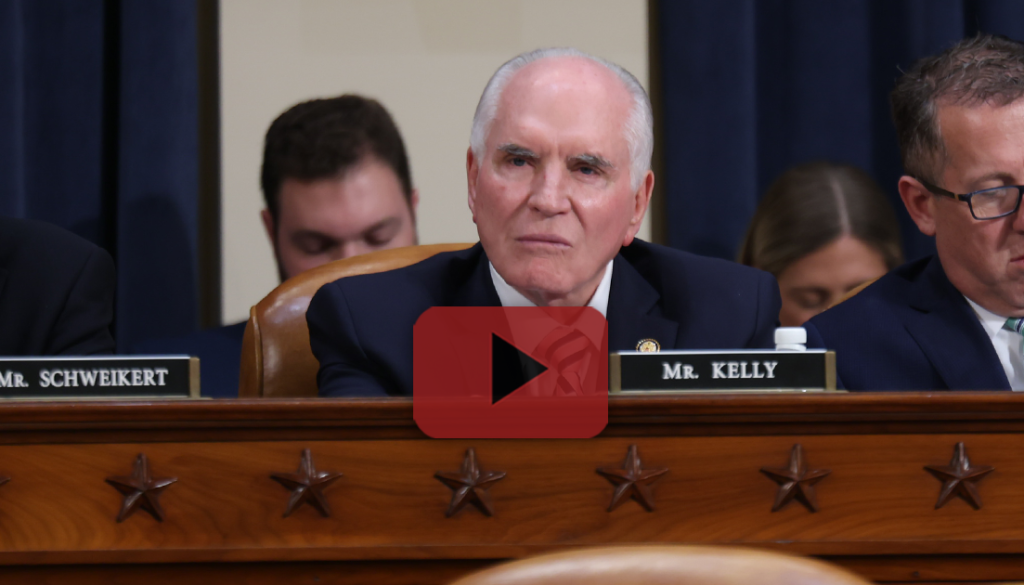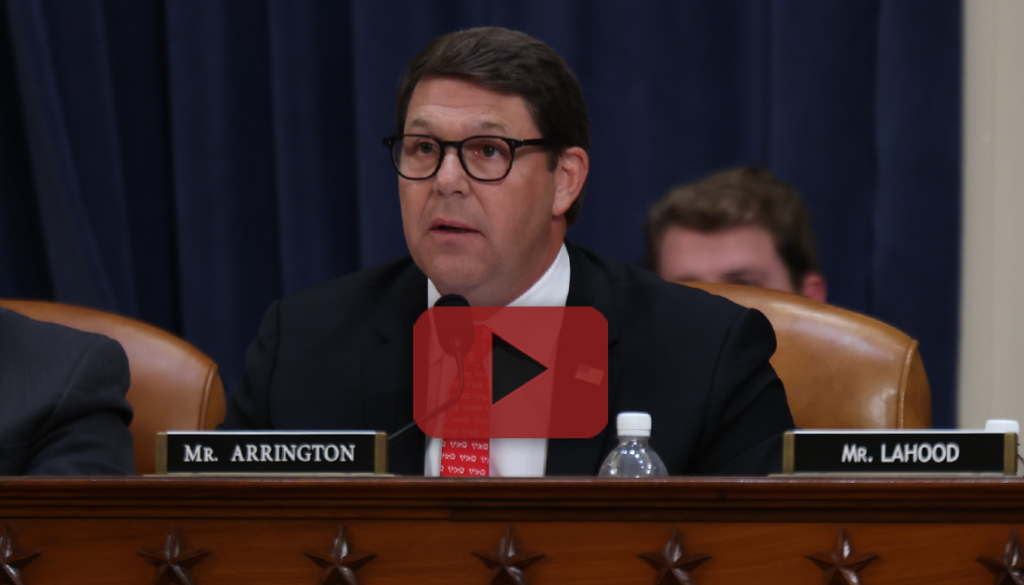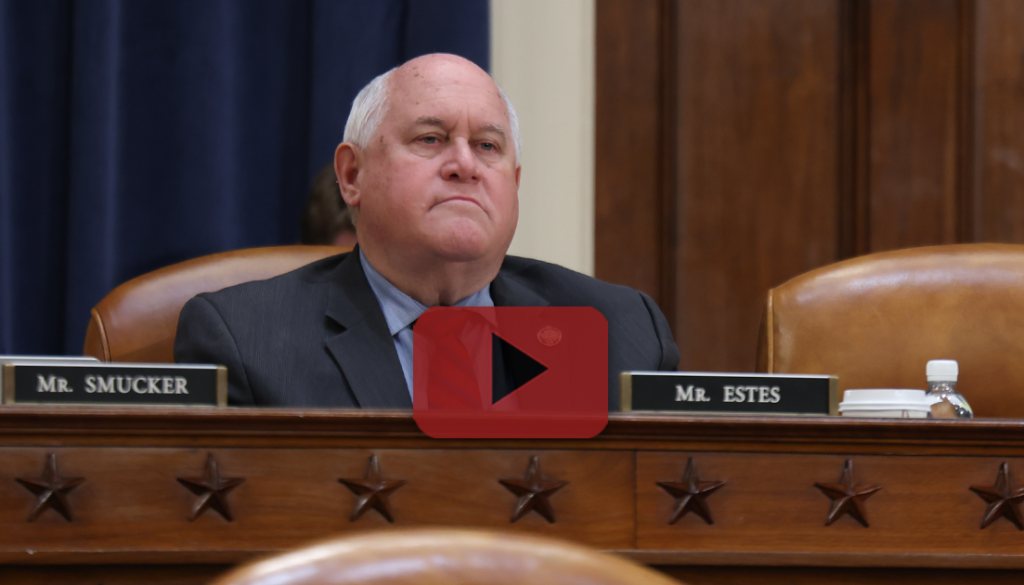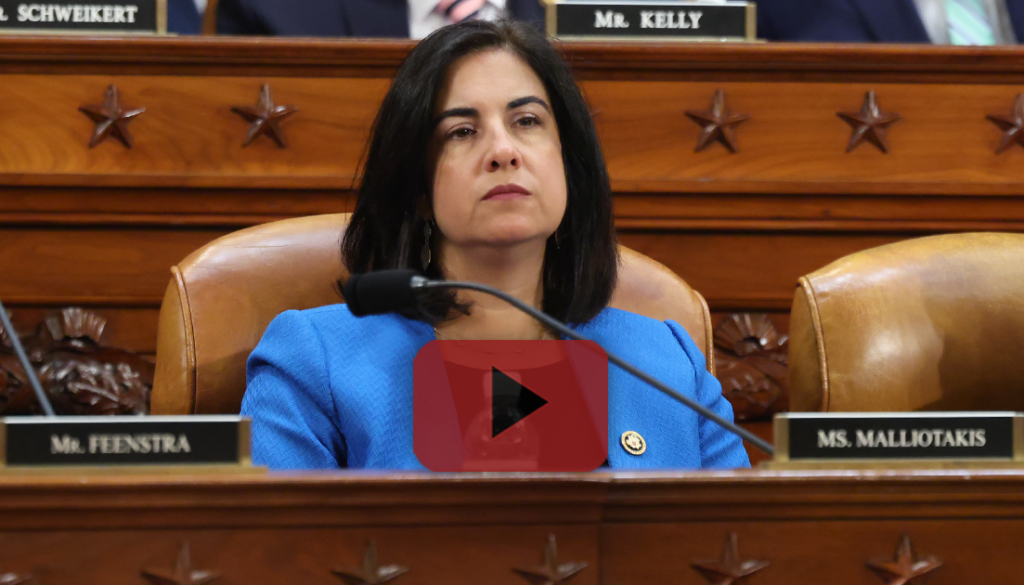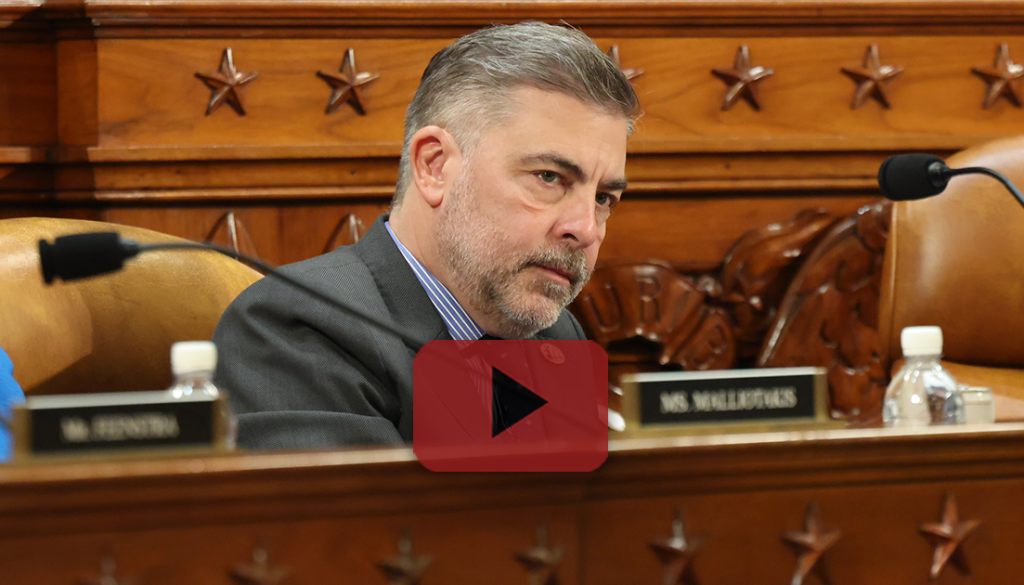WASHINGTON, D.C. – President Trump’s economic agenda – lower taxes, fairer trade, and deregulation – will help working class Americans and grow the economy according to testimony from Trump Administration Treasury Secretary Scott Bessent at a hearing of the Ways and Means Committee. Key to fulfilling the President’s agenda is passing The One, Big, Beautiful Bill. The legislation stops a looming $1,700 tax hike on the average American family by making permanent the 2017 Trump tax cuts and actually provides the same family with a $1,300 tax cut compared to what they pay today while delivering on the President’s promises to hard working Americans: no tax on tips, no tax on overtime, tax relief for seniors, and no tax on auto loan interest.
Secretary Bessent also reiterated the importance of retaining America’s tax sovereignty from nations that choose to unfairly tax American businesses in order to fill their own treasuries. The One, Big, Beautiful Bill will level the playing field with foreign governments using unfair taxes to kill American jobs, steal American tax revenue, and hand a competitive advantage to China.
The hearing came one day after Secretary Bessent, along with United States Trade Representative Jamieson Greer and Secretary of Commerce Howard Lutnick, led trade negotiations between the United States and China that advanced a framework to achieve fairer treatment for American exporters and manufacturers. More than 70 nations have requested rapid negotiations with the United States which have the potential to lower unfair trade barriers hurting American workers and producers.
The One, Big, Beautiful Bill Will Deliver A Second Trump Economic Success Story for the Working Class
The One, Big, Beautiful makes lower tax rates and other tax relief like the doubled Child Tax Credit and standard deduction from the 2017 tax cuts permanent, boosts those provisions to help families, and provides new tax relief that will spur more jobs and higher wages for workers. Building on the successful formula of lower taxes for individuals and pro-growth policy for small businesses and farmers, the bill is poised to repeat the economic success of President Trump’s first term: higher economic growth without inflation.
Chairman Smith: “One of the more absurd attacks we hear from our Democrat colleagues is that The One, Big, Beautiful Bill is focused on the wealthy, not the working class. I’m sure the waitress who will keep more of her hard-earned money under the no tax on tips policy, or the linemen burning the midnight oil to restore power and seeing a tax cut under the no tax on overtime policy, would be surprised to learn that Democrats consider them wealthy. Secretary Bessent, whether it is those policies or the tax relief in the bill for seniors, the doubled Child Tax Credit and standard deduction, or the fact that the tax burden on the truly wealthy will actually rise under this bill, how does The One Big, Beautiful Bill deliver primarily for working families?”
Secretary Bessent: “As we saw in President Trump’s first term, substantial, non-inflationary growth was created. Non-inflationary growth. Real wages rose and working Americans did better. Hourly workers did better than supervisory workers. We believe that this will happen again. As you outlined, no tax on tips, no tax on overtime, tax breaks for seniors on Social Security and the ability to deduct auto loans on new cars made in America, as was available when I bought my first car in 1978, will be restored. All of this will help working Americans overcome this horrendous affordability crisis that this Administration inherited.”
“Cataclysmic”: What Happens If Trump Tax Cuts Expire
If Congress fails to make the 2017 Trump tax cuts permanent, the average family would face a $1,700 tax increase after four years of high prices under the last Administration. Families would pay higher tax rates and see both the standard deduction and Child Tax Credit slashed in half. More farmers would pay the death tax from the reduction in the death tax exemption. Main Street store fronts would shutter from the loss of the 199A 20 percent small business deduction currently used by 26 million small businesses. During his testimony, Secretary Bessent outlined the failure to make the 2017 tax cuts permanent would lead to an avoidable economic disaster.
Rep. Mike Kelly (PA-16): “What actually is going to happen if this bill doesn’t get passed? How is it going to affect hard working American taxpayers?”
Secretary Bessent: “It is what we call in economics, a ‘sudden stop.’ It would be cataclysmic. It would be the largest tax hike in history. It would be a disaster for businesses, for working Americans, the end for our status in the world. To have this happen, we would see increases in taxes of thousands of dollars on working Americans. We would see businesses contract, and we would see a substantial increase in the unemployment rate.”
Democrats Peddling Same Tired, False Talking Points
Democrats have falsely attacked The One, Big, Beautiful Bill as a giveaway to billionaires, despite the fact that earners making over $1,000,000 will pay an even higher share of the tax burden while families making less than $100,000 get a 13 percent tax cut. It’s the same tired talking points Democrats are using today that they used when Republicans passed the 2017 tax cuts – they were wrong then, and they are wrong now. Republicans, both in President Trump’s first term and now, are prioritizing tax relief that puts more money in the pockets of the working class.
Rep. Jodey Arrington (TX-19): “Did the top 1 percent pay a greater share of taxes after the Tax Cuts and Jobs Act?”
Secretary Bessent: “A much higher percentage sir.”
Rep. Arrington: “Did the top one percent that paid 38 percent of the entire cost of the federal government, actually after TCJA, pay a higher percentage of the cost of the federal government, going from 38 percent to 45 percent. True or false?”
Secretary Bessent: “Yes. 7 percent more.”
Foreign Companies Worried About America Asserting Its Tax Sovereignty Should Lobby Their Own Governments For A Change in Behavior
The Biden Administration negotiated a global tax surrender where they allowed foreign nations to unfairly tax American businesses. Under that tax scheme, American workers would lose jobs, and the U.S. Treasury would lose an estimated $120 billion in revenue. The One, Big, Beautiful Bill protects American sovereignty by including a counter tax on foreign companies that would only be triggered if foreign nations choose to unfairly tax American job creators.
Rep. Ron Estes (KS-04): “I want to talk a little bit about section 899…It’s not new, it’s not revenge…It’s a reasonable approach to make sure that foreign countries don’t pilfer the U.S. Treasury with UTPRs [Undertaxed Profit Rule] or DSTs [Digital Service Tax]. The fact is, if we do nothing, we’re ceding our tax authority to other countries. The JCT is warning us that we will lose $122 billion in tax revenue over the next 10 years. Ways and Means could have responded with much more severity in terms of the bill that we looked at. We took a measured approach that maintains our tax sovereignty and that either discourages our allies from moving forward with these discriminatory taxes, or will raise our tax revenues by $116 billion over the next 10 years… Are the fears that Wall Street has over the 899, grounded in truth? Why wasn’t there an outcry from Wall Street and economists during the last administration working with OECD in a manner that put America last?”
Secretary Bessent: “Much of the pushback is coming from overseas companies, and overseas companies are worried that their countries may try to usurp U.S. authority. If a European country tried to unfairly tax a U.S. company or take money away from the U.S. Treasury, then it would fall perhaps, on that corporation, so they should look to their own capitals. This is a fiscal bill, not a revenge bill.”Rep. Estes: “I think that some of these companies need to be lobbying their own government, instead of trying to lobby us.”
Support for Good Faith Trade Negotiations
In the wake of President Trump’s tariff announcements, dozens of countries have already come to the table to negotiate trade deals that are fair to American workers and businesses, and an agreement in principle has already been announced with the United Kingdom. Rep. Nicole Malliotakis (NY-11) noted the increased cooperation on border security and fentanyl interdiction America has received from its trading partners in Mexico and Canada, as well as ongoing negotiations with Japan and India, and asked Secretary Bessent if the Trump Administration would consider extending the deadline for other countries that are found to be negotiating in good faith:
Rep. Nicole Malliotakis (NY-11): “Under the previous Biden Administration, we had zero trade deals. In just five months, we’re seeing more cooperation from Mexico and Canada as it relates to the border and fentanyl. UK, you have a trade deal there. China, we have a framework. Congratulations on the success in last night’s meeting. India, Japan, they are now at the table, as are dozens of other countries. I think it’s really important as we approach that July 9 date for lifting the hold of the pause on the tariffs, that we take into account that we do have these partners who are working with us in good faith. I hope and I urge the administration to not reinstate the tariffs for the nations that are at the table that are working with us to reduce the tariffs, the trade deficits, and increase our market access for our products. I would like to get your opinion on that if you agree that we should have a more targeted approach. Let’s focus on the most egregious offenders who are not as willing to work with us to rectify that.”
Secretary Bessent: “We are focusing on the most egregious, and as I’ve said, there are 18 important trading partners. Most of them account for north of 90 percent of the trade deficit. Our largest trading partners are many of them the biggest problem. Many of them have, as I’ve said, have come with good offers and are working in good faith. It will be up to President Trump, but it is my belief that if someone is negotiating in good faith, that an extension will be possible. In conversations with USTR Ambassador Greer, it’s my belief that with smaller countries where we have lower levels of trade, we may be able to do a one-size-fits-all regional deal so that would cover a great deal of ground on dozens of countries.”
Permanent Relief for Families and Children
In addition to stopping the largest tax increase in U.S. history from hitting working families, The One, Big, Beautiful Bill also extends key provisions of the 2017 Trump tax cuts, including the double Child Tax Credit (CTC), which the legislation increases by an additional $500 to counter four years of Bidenflation. In response to Rep. Mike Carey (OH-15), Secretary Bessent explains how permanency with the enhanced CTC will provide families more certainty when it comes to raising and providing for their children:
Rep. Mike Carey (OH-15): “I want to address the Child Tax Credit because I think this is something that we did in our package that I’m very proud to have supported. I supported it in this bill, and it increases it by $500. Can you speak to how the Treasury views the role of modernizing the Child Tax Credit in boosting family stability and workforce participation? What’s at stake if we let these enhanced benefits expire?”
Secretary Bessent: “That is a fantastic point, because not only does The One, Big, Beautiful Bill add $500 to the Child Tax Credit, it makes it permanent. If the bill does not pass, then there will be substantial diminution. When we talk about uncertainty for working families in terms of which parents should go to work, which shouldn’t, in terms of supplies, in terms of their household balance sheets. I think, as with most things in this bill, the permanence, the permanence, as well as the increase in the Child Tax Credit, is what is very powerful here.”

